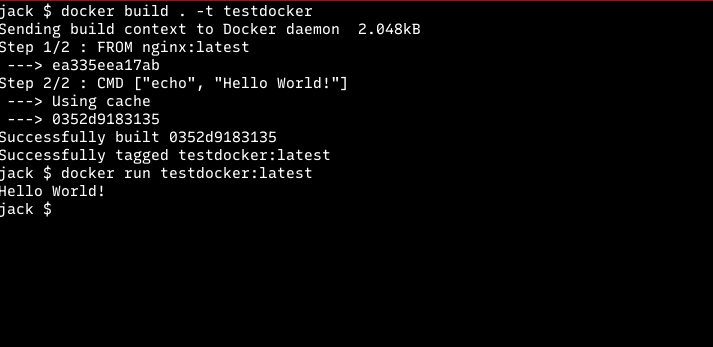Docker is the most known container technology, which is used by a lot of developers, SRE, DevOps, etc. In the Linux repository, they usually ship the docker packages, but mostly the outdated ones. That is why we prefer the packages provided by Docker itself, which updated instantly after the latest version release.
Docker can be used for almost anything, from building a simple app to building a cluster that can be powered by Docker Swarm or Kubernetes. Let’s start installing docker from scratch
sudo apt-get update sudo apt-get install ca-certificates curl gnupg lsb-release -y
Add official PGP key
We need to add PGP key, so we know it’s the authentic packages that signed with trusted key from the official docker repository
curl -fsSL https://download.docker.com/linux/debian/gpg | sudo gpg --dearmor -o /usr/share/keyrings/docker-archive-keyring.gpg
Add Docker Repository
Add the official docker repository, this is the most preferred way because of the docker from the Debian repository is not up to date.
echo \ "deb [arch=$(dpkg --print-architecture) signed-by=/usr/share/keyrings/docker-archive-keyring.gpg] https://download.docker.com/linux/debian \ $(lsb_release -cs) stable" | sudo tee /etc/apt/sources.list.d/docker.list > /dev/null
Install Docker
Finally, time to install the docker itself
sudo apt-get update sudo apt-get install docker-ce docker-ce-cli containerd.io -y
Run Docker As Non-Previleges User
By default docker is only able to run as the root user, which is not recommended because it can go south, because the wrong command or delete some unrelated files/folder. That is why we run docker by a user, which is normally your user.
sudo usermod -a -G docker YOURUSER # example sudo usermod -a -G docker jack
before being able to run the docker, you’ll restart first.
sudo rebootVerify Docker Running
Verify the installation of docker run smoothly, by running docker info
docker info # output ... Client: Context: default Debug Mode: false Plugins: app: Docker App (Docker Inc., v0.9.1-beta3) buildx: Build with BuildKit (Docker Inc., v0.6.3-docker) scan: Docker Scan (Docker Inc., v0.9.0) Server: Containers: 0 Running: 0 Paused: 0 Stopped: 0 Images: 0 Server Version: 20.10.11 Storage Driver: overlay2 Backing Filesystem: extfs Supports d_type: true Native Overlay Diff: true userxattr: false Logging Driver: json-file Cgroup Driver: systemd Cgroup Version: 2 Plugins: Volume: local ...
Test pull images from Docker Hub
docker pull nginx:latest
Build simple Docker image, create a Dockerfile file
FROM nginx:latest CMD ["echo", "Hello World!"]
the build using docker build
docker build . -t testdocker
run the docker images, which we build earlier
docker run testdocker:latest
That’s it, the docker running well, it can build the docker file and connection okay. For the latest step is to remove the testdocker, to clean up a little bit space
docker rmi testdocker -f